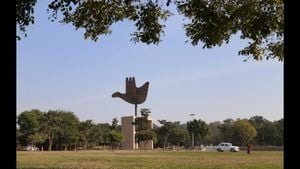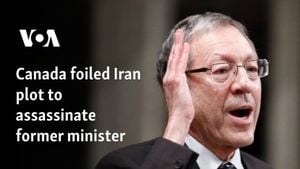The political arena is buzzing with accusations and calls for resignation centered around Employment Minister Randy Boissonnault amid controversy surrounding his claims about Indigenous ancestry. Facing scrutiny from opposition MPs and Indigenous leaders, Boissonnault is at the center of heated debate as questions swirl about the validity of his family’s heritage.
Boissonnault, who has served as Employment Minister, is under fire for allegedly misrepresenting his family background and allowing his former company, Global Health Imports, to portray itself as Indigenous-owned when bidding for federal contracts back in 2020. This action has led critics to question his integrity and suitability for his current position.
Joanna Bernard, the Assembly of First Nations regional chief for New Brunswick, expressed her deep disappointment over the conflicting statements made by Boissonnault about his family heritage. According to Bernard, “If somebody is doing something on his behalf, he should have been aware. I think ignorance is not an excuse, and he should resign.”
Recent revelations show Boissonnault has referred to his great-grandmother as Cree, yet census records suggest she may have been of German descent, prompting skepticism about his claims. Notably, on November 8, Boissonnault claimed via social media to have status Métis connections through his adopted family.
“Boissonnault has described his great-grandmother several times as Cree,” says one of his critics, “but how can we trust his lineage if the facts don’t align with his narratives?” This confusion has raised concerns about the practices of Indigenous ancestry verification within federal contracts.
Blake Desjarlais, the New Democrat MP of Cree and Métis descent, publicly stated, “Boissonnault must resign as minister because he is making decisions related to Indigenous people's lives, yet he’s uncertain about his own connections.” This sentiment marks the first time Desjarlais has called for the minister's resignation.
The political pressure escalated during question period, where Conservative MP Andrew Scheer insisted on Boissonnault’s responsibility to his ancestry and termed the situation as “shameful and extremely destructive.” Former federal justice minister Jody Wilson-Raybould, also of Indigenous descent, added her voice to the conversation, stating, “A Prime Minister committed to true reconciliation would have removed Randy from Cabinet long ago.”
Despite calls for action, Prime Minister Justin Trudeau defended his minister, stating, “I’m happy Boissonnault is continuing to lead on jobs and employment issues.” Trudeau’s backing for Boissonnault has not put the brakes on talks of resignation, and the tension within Parliament is palpable.
On Tuesday, things heated up: three Conservative MPs were booted from the House of Commons after they made comments accusing Boissonnault of fraudulence. The uproar centered around comments made by MP Michelle Rempel Garner, who referred to Boissonnault as a “fraud,” citing his misleading claims to the media. Although she argued her statement was based on the words of Cree lawyer cited by the National Post, it nonetheless resulted in the Conservative MPs’ removal from house discussions.
The fallout from this controversy isn't limited to policy discussions; it also amplifies larger conversations surrounding accountability, representation, and the verification process linked to Indigenous status. Joanna Bernard emphasized the necessity for transparency, urging for accountability over the contracts awarded to businesses claiming Indigenous status.
“We need clarity about who is really Métis and who is truly First Nations,” Bernard added, highlighting the struggles Indigenous businesses face when competing against potentially mischaracterized entities seeking government contracts. This debate isn’t merely academic; it has real-world consequences for communities reliant on fair access to opportunities.
Even within the Liberal Party, there are mixed feelings about Boissonnault's position as he faces extreme scrutiny. While some cabinet members remain supportive, others are beginning to express hesitance to defend his leadership amid the growing waves of criticism. The coming weeks could prove pivotal as both political parties closely watch what Trudeau decides to do with Boissonnault’s role within the government.
Leaders are grappling with the thought of what these allegations mean not only for Boissonnault but also for the governmental processes associated with Indigenous representation. Opposition members are calling for more stringent checks and clarity on businesses claiming Indigenous identity, urging for greater accountability from politicians and businesses alike.
While Boissonnault continues to assert he had no part in his former company’s claims post-election, opposition and Indigenous leaders stress the importance of honesty and integrity for public figures, particularly those making decisions affecting Indigenous communities.
Operations within the Parliament are marked by divisions, and the calls for Boissonnault's resignation seem to highlight broader frustrations over representation and authenticity within governmental roles. The situation raises questions about accountability and representation, highlighting the need for policies ensuring individuals claiming Indigenous status can substantiate their connections openly.
With Congress embroiled in discussions over identity misrepresentation, Boissonnault continues to face questions he must navigate expertly to mend fences and restore faith. The insistence on his stepping down might offer the opposition's desired political currency, but perhaps also self-reflection on how identities are represented within Canadian politics.



